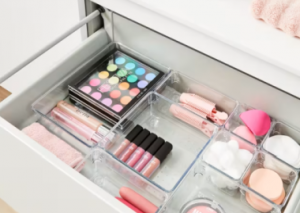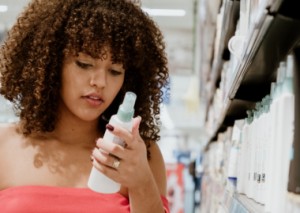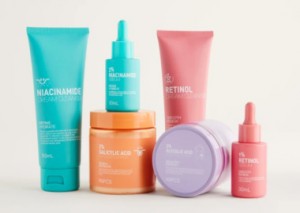
by BR Amelia
Out of all the ingredients we see in skincare, retinol is one that I believe we ought to be most careful about. This is not to say that retinol is dangerous, more that it's super easy to go overboard when first using it, which can cause irritation to your skin. Case in point: One of the lovely Beauty Review Crew picked up a retinol serum and decided that since, and I quote, "my skin's as a tough as a rhino's", she would skip the instructions saying to use it once every three days initially and decided every day would be better. The result? Retinol burn all over her chin, and a lesson about following the product instructions learnt. The thing is, retinol requires a softly, softly approach, and if you have the patience and the determination to get through those first few weeks while your skin becomes acclimated to it, you will reap the rewards. So what is retinol, how best should you use it, and what are the pitfalls? Read on...
What is retinol?
Retinol is derived from Vitamin A and works to speed up the process of cell renewal, exfoliate the skin, and boost collagen and elastin production. The results from using retinol include smoother, glowing, more even-looking skin, as well as a reduction in the appearance of fine lines, wrinkles and sun/age spots. For those who suffer from break outs, retinol can also reduce flare ups.
How should retinol be introduced into your skincare regime?
Depending on the product the levels of retinol included will differ, which means the first, most obvious rule of introducing retinol into your skincare regime is: read and FOLLOW the instructions on the box or the bottle or the tube. Don't be like my nameless BR Crew buddy and decide you've rhino skin and can handle more. Do as the brand's instructions tell you to do.
Instructions sorted? Cleanse your skin then waiting for thirty minutes before applying the product. This can help reduce the risk of irritation (when skin is damp the product can penetrate more easily, which is not ideal when you're first getting used to retinol).
Next... If you're using a retinol serum, apply a pea-sized amount, let it sink in (fifteen to twenty minutes should do the trick), then apply your moisturiser. If you're using a moisturiser that includes retinol (rather than a serum), stick to a thin layer rather than smothering your skin in it.
Don't combine other harsh skincare ingredients on the same day that you're using retinol as you risk damaging your skin.
Once your skin has built up its tolerance to retinol you may feel like it's not doing anything. The thing is, it is still working, but you do tend to reach a point where you won't see further benefits. When/if that happens you can consider moving onto a higher level of retinol. And, yes, if you do that you will need to build up your tolerance once more.
What can you expect when using retinol?
Initially you may find your skin feels drier, there may also be redness and/or flaking. During this period it pays to keep your skin care simple and nourishing. You might also want to avoid putting on makeup during this time.
If you overdo things, you may find yourself with a case of retinol burn, at which point you need to stop using the retinol product and give your skin time to heal by avoiding makeup and only using simple skincare products, such as those found in the CeraVe line.
Some people experience "retinol purging", which is when the skin breaks out due to the increased cell turnover, as well as any oil or dead skin cells being pushed up - all of which can clog pores. It's not an ideal situation, especially if you're using retinol to help control break outs, but if you persist through the process (and it can last a few weeks) the results can well be dealing the the 'retinol uglies'.
As for the results? It can take up to three months to begin to see the effects of retinol, and the longer you use retinol, the more results you will see, so patience and sticking to the routine is required.
Anything else I need to know?
If you are pregnant (or trying to get pregnant) or nursing, it is not advised that you use retinol. If you're tempted, talk to your midwife or doctor first.
If you experience sensitive or dry skin, eczema, rosacea or severe acne, talk to a skin professional before trying retinol.
If you're going to use retinol you're going to have to use SPF. The fact is it makes your skin more sensitive to the sun, so extra care must be taken. Wear SPF daily. No exceptions. And, as always, if your skin reacts, cease using the product immediately, and if you do want to continue trying retinol talk to a skin care professional first.
So, my lovelies, have you been avoiding retinol because it seems to complicated? Are you keen to now give it a go? Or are you already all over the retinol and wouldn't be without it? Chat below!












I've not used retinol. I'm also wondering if you can use it while BF.